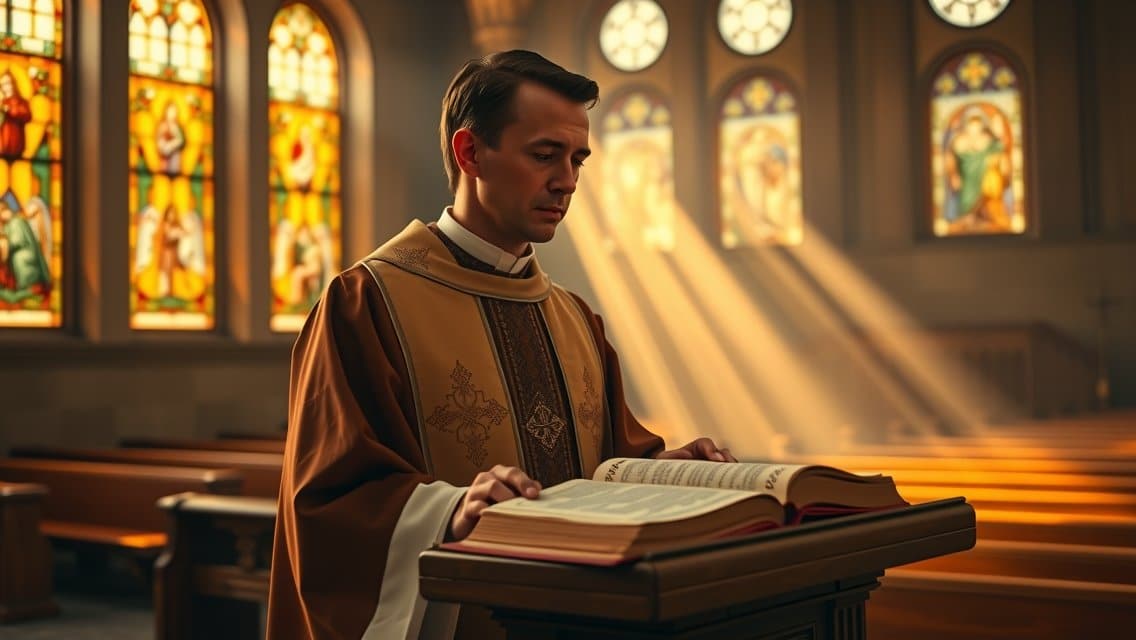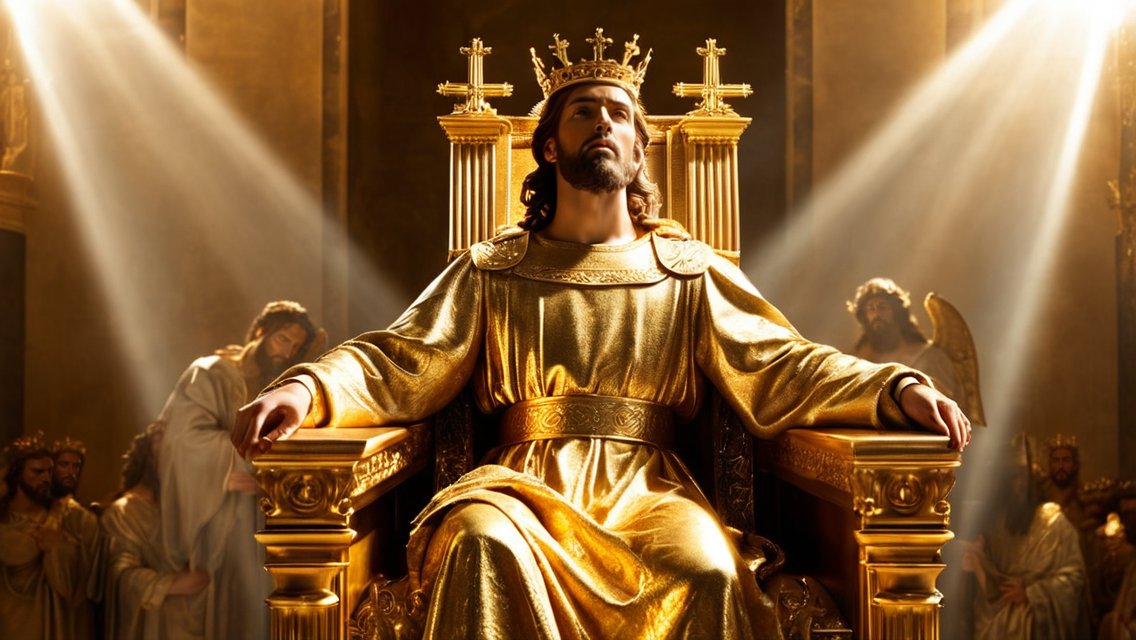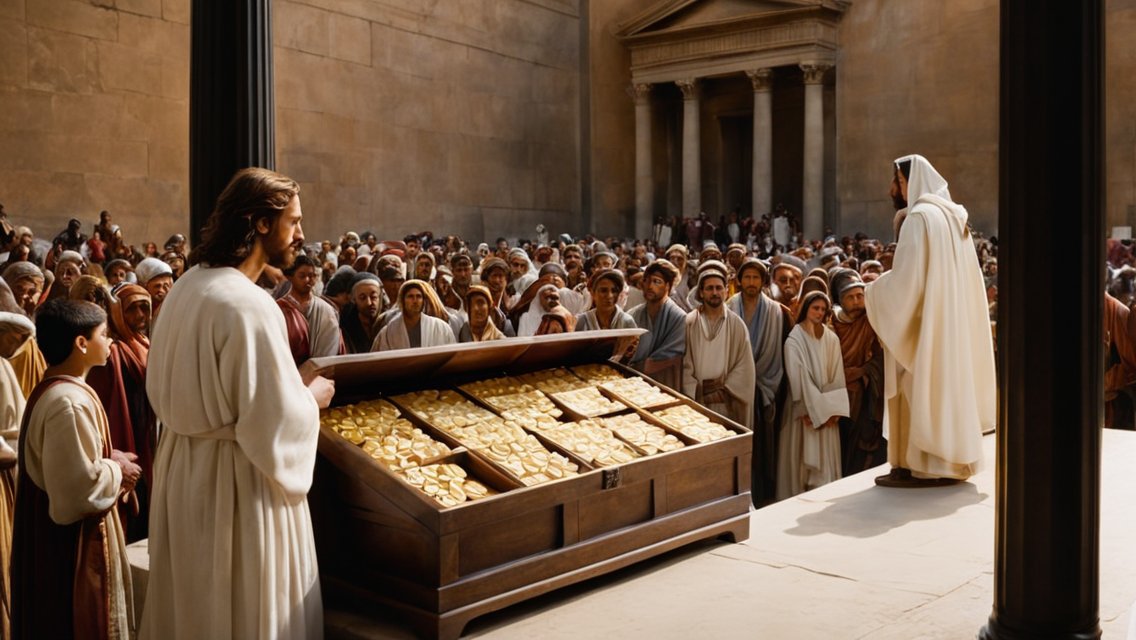Homily For 33rd Sunday in Ordinary Time Year B
Readings:
Dan 12:1-3
Heb 10:11-14, 18
Mk 13:24-32
1st Reading – Daniel 12:1-3
1 In those days, I Daniel, heard this word of the Lord: “At that time there shall arise Michael, the great prince, guardian of your people; it shall be a time unsurpassed in distress since nations began until that time. At that time your people shall escape, everyone who is found written in the book.
2 “Many of those who sleep in the dust of the earth shall awake; some shall live forever, others shall be an everlasting horror and disgrace.
3 “But the wise shall shine brightly like the splendor of the firmament, and those who lead the many to justice shall be like the stars forever.”
Responsorial Psalm – Psalms 16:5, 8, 9-10, 11
R. (1) You are my inheritance, O Lord!
5 O LORD, my allotted portion and my cup,
you it is who hold fast my lot.
8 I set the LORD ever before me;
with him at my right hand I shall not be disturbed.
R. You are my inheritance, O Lord!
9 Therefore my heart is glad and my soul rejoices,
my body, too, abides in confidence;
10 because you will not abandon my soul to the netherworld,
nor will you suffer your faithful one to undergo corruption.
R. You are my inheritance, O Lord!
11 You will show me the path to life,
fullness of joys in your presence,
the delights at your right hand forever.
R. You are my inheritance, O Lord!
2nd Reading – Hebrews 10:11-14, 18
Brothers and sisters:
11 Every priest stands daily at his ministry, offering frequently those same sacrifices that can never take away sins.
12 But this one offered one sacrifice for sins, and took his seat forever at the right hand of God;
13 now he waits until his enemies are made his footstool.
14 For by one offering he has made perfect forever those who are being consecrated.
18 Where there is forgiveness of these, there is no longer offering for sin.
Alleluia – Luke 21:36
R. Alleluia, alleluia.
36 Be vigilant at all times
and pray that you have the strength to stand before the Son of Man.
R. Alleluia, alleluia.
Gospel – Mark 13:24-32
Jesus said to his disciples:
24 “In those days after that tribulation the sun will be darkened, and the moon will not give its light,
25 and the stars will be falling from the sky, and the powers in the heavens will be shaken.
26 “And then they will see ‘the Son of Man coming in the clouds’ with great power and glory,
27 and then he will send out the angels and gather his elect from the four winds, from the end of the earth to the end of the sky.
28 “Learn a lesson from the fig tree. When its branch becomes tender and sprouts leaves, you know that summer is near.
29 In the same way, when you see these things happening, know that he is near, at the gates.
30 Amen, I say to you, this generation will not pass away until all these things have taken place.
31 Heaven and earth will pass away, but my words will not pass away.
32 “But of that day or hour, no one knows, neither the angels in heaven, nor the Son, but only the Father.”
Add Moral Story to Your Homily
Add Religious Jokes to Your Homily
Add Some Bible Verses To Your Homily
| Bible Verses on Love of God | Bible Verses on Good Shepherd |
| Bible Verses on Servant | Bible Verses on Eternal Life |
| Bible Verses on Marriage | Bible Verses on Inner Sight |
| More Bible Verses | More Bible Verses |
Homily For 33rd Sunday in Ordinary Time Year B
Different Homily
Hawking & Dawkins, Distress & Death
“There is going to be a time of great distress” (Dan)
A distressed youth was about to hang himself when his old neighbour entered his house. “What are you doing?” shouted the old man. “I’m committing suicide!” said the youth in desperation. “Well,” said the old man, “if you give me good reasons for committing suicide, I won’t stop you.” The youth complained tearfully-about personal, societal and global problems. Thereafter, the neighbour asked, “Have you got another rope?” Puzzled, the youth asked: Why?” The old man sighed, “That l might hang myself too!” Distress and death are two themes that emerge from the readings, today, as we approach the end of this liturgical year.
“There is going to be a time of great distress,” reads the book of Daniel; and, Jesus foretells, “In those days, after the time of distress, the sun will be darkened…” It’s not easy to understand the readings of today since the first and third readings contain what is called ‘apocalyptic language’ or ‘end-time terminology’.
The book of Daniel has vague historical references, but its main purpose is to point to the future. In other words, history will yield to eschatology (last ages) and deliverance will take the form of resurrection. Today’s passage is one of the earliest Old Testament passages that speak of resurrection. “Those who lie sleeping in the dust” refers to the dead since ‘sleep’ is a euphemism for death. The resurrection referred to, here, is a total transformation since the redeemed will “shine as bright as stars for all eternity.” There is use of poetic and symbolic language to convey a deep truth about death and resurrection.
Today’s psalm (16) expresses an individual’s trust and hope in God to deliver him from death and the grave. “You shall not leave my soul among the dead” in the psalm does not refer to the resurrection as understood in the New Testament, but is used in the liturgy to highlight hope in the unique resurrection g, promised by Jesus alone.
The gospel passage from Mark begins with a series of cosmic events – sun darkened, moon fading and stars falling from heaven -to indicate that history will end and human beings will be judged by the “Son of Man”. This “Son of Man” language is taken from the book of Daniel with Jesus as the Great judge. What sense do we make of all this symbolic language, today?
Brilliant theorists have provided answers about the beginning and end of Life. One of the world’s most eminent scientists, Stephen Hawking, shocked the world of science on August 3, 2006, when he said, “I don’t know whether humankind will survive for another 100 years.” And, in a new book titled, “The God Delusion” biologist Richard Dawkins reduces faith to a form of irrationality, which he terms a “virus of the mind”. We’re tempted to be distressed by Hawking’s pessimism or be smitten by some ‘mental virus’ that deludes poor Dawkins. This is where Christ calls us to a life of faith, hope, and love.
Reflecting upon my death helps. Perhaps I can walk through a cemetery contemplating life and death, or, I could think of those millions much younger than me who have died in southern tsunamis, Mumbai’s bomb blasts, Delhi’s dengue fever or even African famines. Why am i alive? John Henry Newman wants us to remember three things: life is short; death is certain; eternity is long.
As the liturgical cycle draws to a close, let me take stock of where l am, and where I am heading. Am I distressed? Fearful of death? Like the old neighbour in our opening story, l might be tempted, to draw the noose around my own neck with theories from scientists like Hawking and Dawkins. Isn’t it more meaningful to follow Him who promises, “One who believes in me shall never die”? Defying distress and death we can proclaim with Paul: “0 death, where is thy sting?” (1 Cor 15:55)





